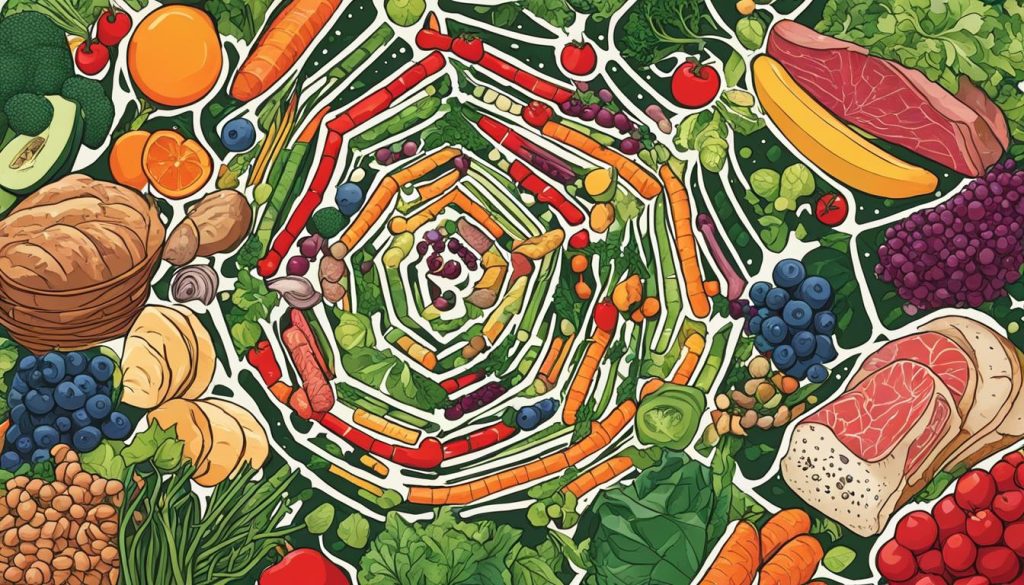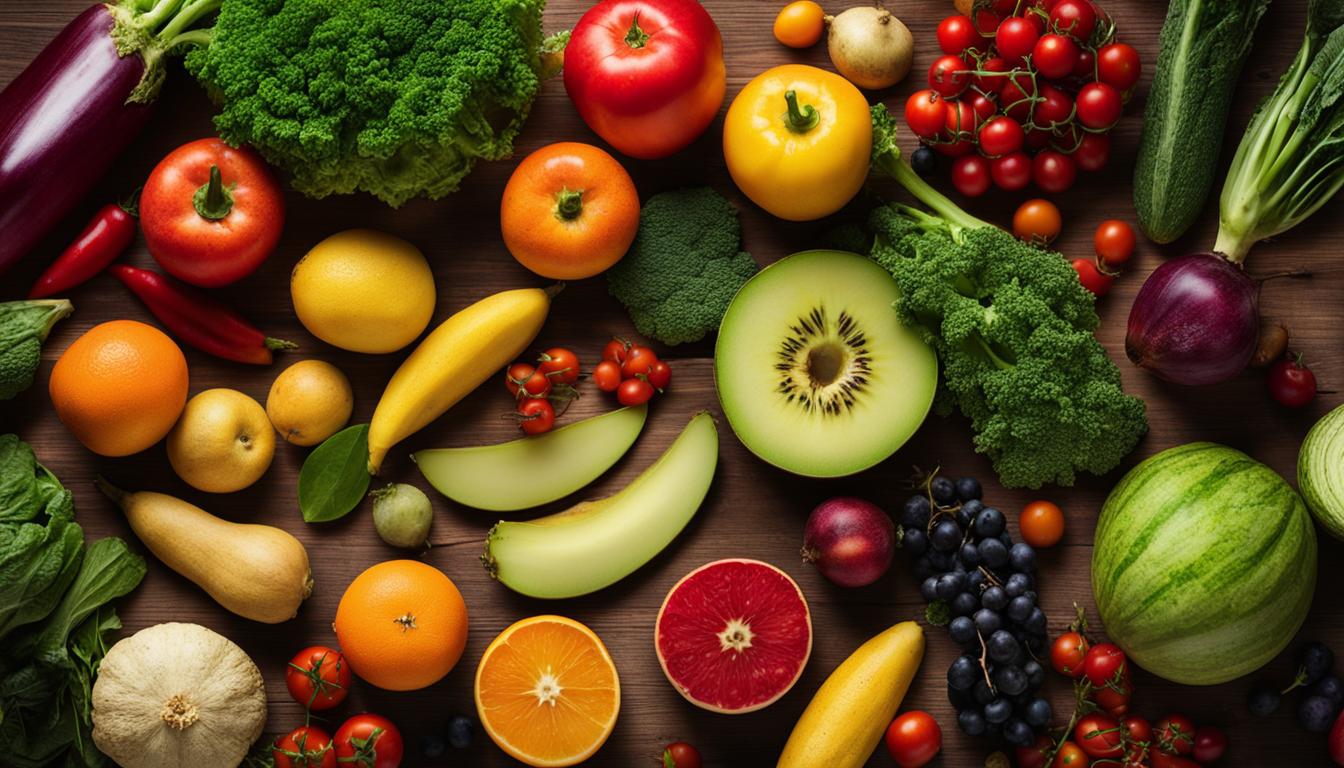Food is an essential part of life, providing us with the energy and nutrients we need to function and thrive. However, not all foods are created equal, and making informed choices about what we eat is crucial for our overall health and well-being. This is where nutrition education comes in, helping individuals to understand the significance of healthy eating and the impact of food on our bodies.
Food education resources, such as those provided by Food A Fact of Life, can play a vital role in enhancing knowledge and creating informed food choices. From teaching resources for educators to engaging content for all age groups, Food A Fact of Life offers valuable insights and tips for healthier eating and informed decision-making.
Key Takeaways
- Food education is essential for making informed choices about what we eat.
- Nutrition education is crucial for understanding the impact of food on our overall health and well-being.
- Food A Fact of Life provides valuable resources and insights for healthier eating.
- Teaching resources for educators can enhance food education in schools and other educational settings.
- Making informed food choices can lead to a healthier and happier life.
Understanding Nutritional Basics
In this section, we will explore the fundamentals of food science and nutrition education. A balanced diet is crucial for overall well-being and a healthy lifestyle. By understanding the science behind food and its impact on the body, individuals can make informed decisions about what they consume.
Food science is the study of the physical, biological, and chemical makeup of food. It explores how various components of food interact and affect the body’s functions. For instance, carbohydrates are a crucial component of a balanced diet, providing energy to the body.
Healthy eating is an essential factor in maintaining optimal health and preventing chronic diseases such as obesity, diabetes, and heart disease.
Various government and non-governmental organizations offer nutrition education programs to promote healthy eating habits and increase individuals’ knowledge of food and nutrition. The goal is to equip individuals with the knowledge to make informed decisions about their diet and promote sustainable dietary habits. These programs use various methods, such as workshops, seminars, and online resources.
To illustrate how food choices can influence health outcomes, here is a sample table:
| Food Group | Benefits |
|---|---|
| Fruits and Vegetables | Rich sources of vitamins, minerals, and fibre needed for healthy digestion and to reduce the risk of chronic illness |
| Protein and Legumes | Helps build and repair body tissues. Legumes provide a good source of fibre and are a healthy alternative to meat. |
| Whole Grains | Source of complex carbohydrates, protein, fibre, vitamins, minerals, and antioxidants. They are also linked to a lower risk of heart disease and type 2 diabetes. |
| Dairy | Important source of calcium, which is necessary for strong bones, teeth, and muscle function. |
| Fats and Oils | Provide energy and essential fatty acids, which are necessary for brain function. |
By learning about food knowledge and nutrition, individuals can make informed decisions about what they consume, leading to a healthier lifestyle and overall well-being.

Enhancing Food Safety and Cooking Skills
Proper food safety practices are paramount to ensure a healthy eating experience. In this section, we will highlight essential aspects of food safety, including safe handling, storage, and preparation of food to prevent foodborne illnesses.
One of the critical factors in food safety is ensuring food is kept at the appropriate temperature. This table below highlights the recommended internal temperatures for different food types:
| Food Type | Temperature (°C) |
|---|---|
| Beef and Lamb | 63 |
| Pork | 71 |
| Poultry | 75 |
| Leftovers | 75 |
| Seafood | 63 |
Cooking skills are also crucial for maintaining a healthy and balanced diet. By learning basic cooking techniques and incorporating nutritious ingredients, individuals can create satisfying meals at home. Here are a few tips to enhance your cooking skills:
- Experiment with new flavours and ingredients
- Learn basic knife skills
- Incorporate fruits and vegetables in every meal
- Practice proper meal planning and food preparation
Remember, by focusing on food safety and developing your cooking skills, you are taking an important step towards a healthier future.

Conclusion
To conclude, education and understanding are the cornerstones of making informed decisions about our food choices. By accessing resources like Food A Fact of Life, individuals can gain valuable knowledge about nutrition, cooking skills, and food safety. Applying this knowledge is the first step towards healthier eating habits and improving overall well-being. It’s important to appreciate the role that food plays in our lives and embrace it as a catalyst for positive change.
FAQ
What is the importance of nutrition education?
Nutrition education plays a vital role in promoting healthy eating habits. It equips individuals with knowledge about proper nutrition, enabling them to make informed food choices and maintain overall well-being.
How can food education enhance knowledge about nutrition?
Food education provides teaching resources and tools to educate individuals about various aspects of nutrition, such as food groups, portion sizes, and the importance of a balanced diet. It helps individuals develop a deeper understanding of the nutritional value of different foods and fosters healthier eating habits.
What are some tips for meal planning for healthier eating?
Meal planning is an effective strategy for healthier eating. By prepping meals in advance, individuals can ensure a well-balanced and nutritious diet. Some tips for meal planning include incorporating a variety of fruits, vegetables, whole grains, and lean proteins, considering portion sizes, and moderating the intake of processed and high-sugar foods.
How does understanding food science contribute to healthier eating?
Understanding food science helps individuals comprehend how different foods and nutrients affect the body. It enables them to make choices based on nutritional value and promotes informed decision-making in terms of healthier food options.
What are the key principles of food safety?
The key principles of food safety include proper handling, storage, and preparation of food to prevent foodborne illnesses. These principles involve ensuring cleanliness, avoiding cross-contamination, cooking food to appropriate temperatures, and practicing good hygiene while handling and serving food.
How can one improve their cooking skills for healthier meal preparation?
Improving cooking skills is essential for creating nutritious meals. Individuals can enhance their cooking skills by taking cooking classes, exploring new recipes and cooking techniques, and experimenting with a wide range of ingredients. Practicing basic cooking skills, such as chopping, sautéing, and baking, can also contribute to healthier meal preparation.




